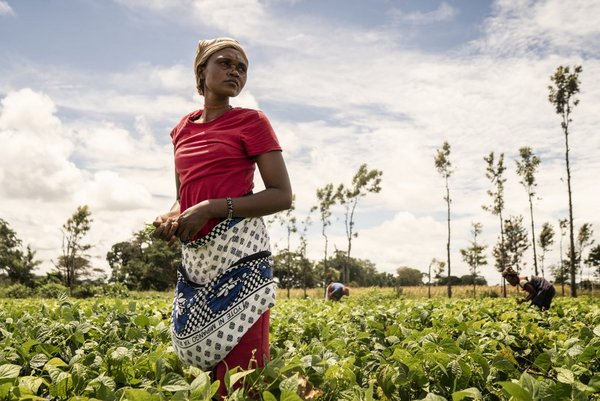- Share this article
- Subscribe to our newsletter
Adopting gender-inclusive approaches in contract farming
Women need more support to participate in contract farming to the same extent as their male counterparts and have more equality along the whole food value chain, CABI scientists suggest in June 2021.
The CABI-led research - which sought to assess the benefits of good farmer seed production through a case study of the Good Seed Initiative in Tanzania - reveals that while around 70 per cent of the labour to grow African Indigenous Vegetables (AIVs) is provided by women only 10 to 30 per cent of them are contract farmers who own the fields, make decisions on sales and control revenues.
The paper argues that the adoption of gender-inclusive approaches in contract farming arrangements is 'paramount' and can have multiple benefits, including shared decision-making amongst men and women.
Significant gender differences in AIV production
Quality seed is key to increasing crop production, nutrition and wellbeing. But smallholder farmers in Tanzania have limited access to affordable quality seeds - over 90 per cent of seed sown is saved by farmers from previous harvests, though its quality is often poor.
The Good Seed Initiative, which ran between 2013 and 2016, sought to enhance access to quality AIV seed through the promotion of farmer seed production using two models - contract farming and Quality Declared Seed (QDS).
The programme reached over a million consumers and growers through radio programmes, seed rallies, nutritional outreaches, cook shows, and agricultural shows and events. A policy brief was also developed and circulated to stakeholders in Tanzania on the production and sales of quality-assured AIV seed.
While farmer seed production under both models continued to thrive - creating avenues for income diversification and contributing over 50 per cent to household incomes - there are significant differences in the roles men and women play in the production of the AIVs.
'Crowding out' of women in seed production
"QDS seed production is challenged by a lack of access to foundation seed, inspections, and seed testing services - which are key to quality seed production. But another challenge is the apparent 'crowding out' of women in seed production. And it's not just in Tanzania. In Kenya, for example, less than 10 per cent of women participate in contract farming arrangements for fruits and vegetables", says lead author Dr Monica Kansiime.
The study revealed that the new farmers entering into seed production were mainly men especially in the north, causing concern that women would be excluded along the AIV value chain as the AIV enterprises become profitable.
(CABI/ile)
Read more at CABI website





Add a comment
Be the First to Comment